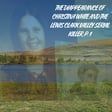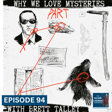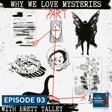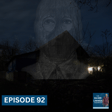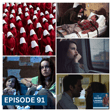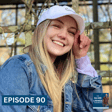
84. Finding Hope and Engaging with Empathy with Julie Murray
Julie Murray, a victim's advocate, the current host of the Media Pressure podcast, and the sister of Maureen Murray, a 21-year-old woman who went missing in 2004 in New Hampshire, is the host of a new podcast called Media Pressure, where she not only tells the story of her sister, Maura's disappearance from the perspective of her family, she has also become an advocate for victims and their families and one of the leading voices calling for empathy in the true crime space.
Today we're going to discuss how you grieve when you do not know what happened to your loved one or get a chance to say goodbye. We're going to talk about the victim's needs from law enforcement, the public, and the media, some of the challenges that families face in this new media landscape in a better way for law enforcement, courts, the media, and the public to help support loved ones as they try to mourn, heal, find peace, and search for answers. We also discuss things that we can all do to manage our losses, which are universal.
Check out the Silver Linings Handbook website at:
https://silverliningshandbook.com/
Check out our Patreon to support the show at:
https://www.patreon.com/thesilverliningshandbook
Visit the Silver Linings Handbook store to support the podcast at:
https://www.bonfire.com/store/the-silver-linings-handbook-podcast-store/




